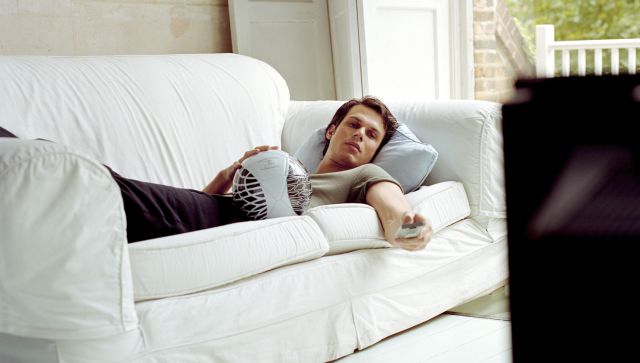Updated on June 26, 2023.
Happiness comes in many forms: sleeping in on Saturdays, finding $20 in your pocket, biting into a warm cookie.
But here's something that may put a dent in that happiness: spending too much time watching television.
Considering the evidence
To learn more about the connection between happiness and TV viewing, one landmark 2008 study published in Social Indicators Research looked at 30 years’ worth of data from nearly 30,000 adults. Researchers found that people who considered themselves unhappy tended to watch significantly more TV than those who said that they were very happy. Happier people, on the other hand, spent more time on other activities, including mingling with friends and family members, reading newspapers, and attending religious services.
But what comes first, TV watching or unhappiness? Does extra TV watching promote unhappiness, or are unhappier people drawn to television?
A 2019 study published in the Journal of Happiness Studies helped to tease out the direction of this relationship. Researchers combed through journal entries of 1,668 adults in the United States and found that, although TV watching didn’t make people unhappy, people who reported higher levels of unhappiness tended to watch more TV. How much did they view? Less-happy people spent more than 115 minutes per day with the television on, sacrificing time that could be spent in a more social or active way.
Along the same lines, a 2021 study published in Frontiers in Psychology looked at TV and media consumption during the COVID-19 pandemic and its association with overall happiness. Researchers came to a similar conclusion: People who consumed more media while in isolation reported less overall happiness than those who consumed less media. By choosing TV watching, people were forgoing other activities that may have had more long-term benefits for their mental and physical health.
What may boost happiness more effectively and consistently than binging on TV? Evidence indicates that activities such as spending time with family, exercising, or engaging in fulfilling hobbies often lead to more long-term, sustained levels of happiness. Researchers theorize that, because time is a fixed and precious asset, the more time spent in front of a television, the less time spent doing these other, more rewarding things.
Don't throw out your TV
Despite what these studies suggest, the link between TV watching and personal happiness probably depends largely on the individual and time spent viewing. Watching television in moderation likely won’t threaten your quality of life—unless it’s at the expense of your personal relationships, hobbies, and physical health.
Ultimately, rather than demonizing media consumption, it may be more helpful to consider why and how you consume TV in the first place and then look for ways to balance your viewing with more in-real-life fun. It's probably not realistic for anyone to ditch their favorite shows all at once, but consider starting out by swapping a half hour of daily viewing for an equivalent amount of time walking, journaling, or talking on the phone with friends.







